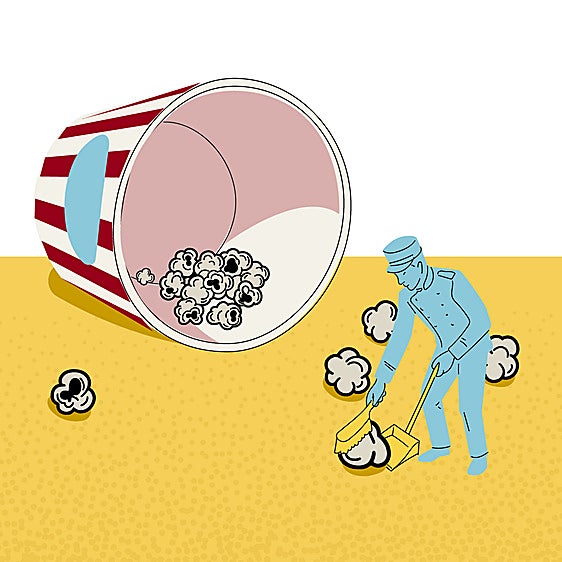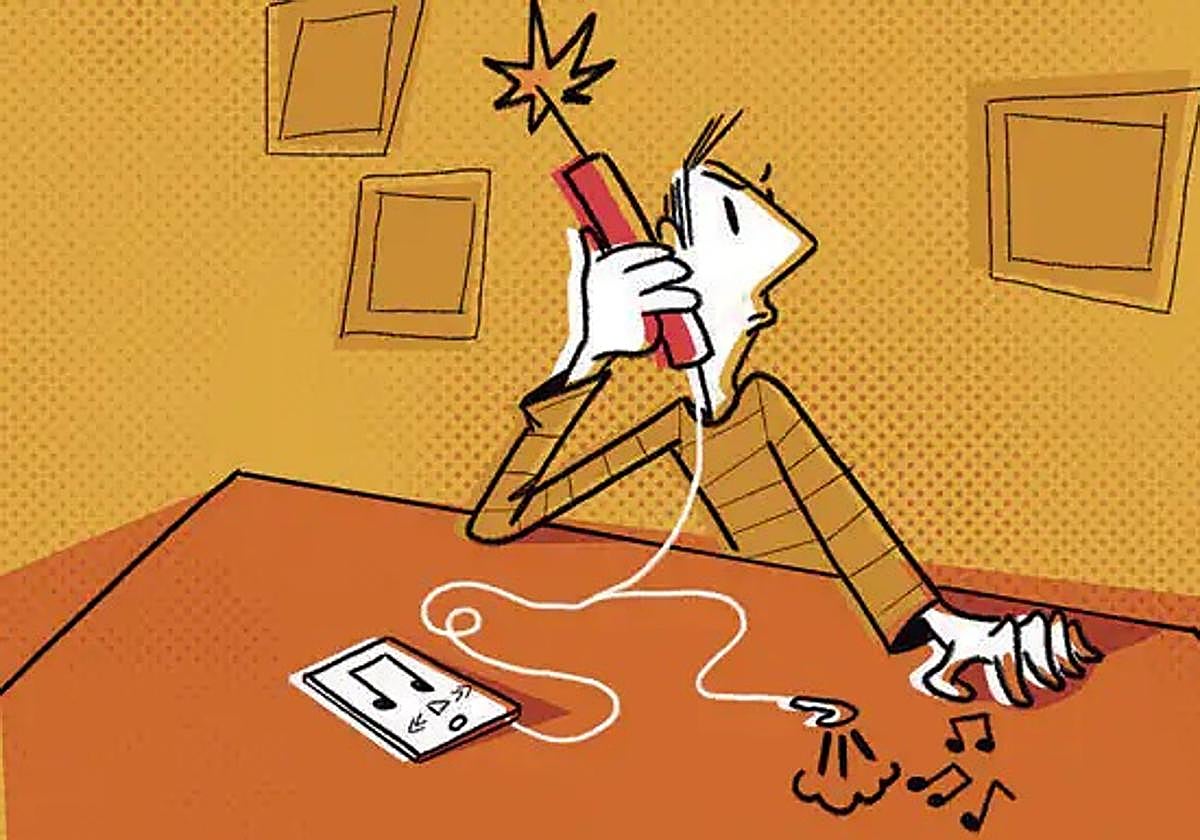When noise can be deafening
After being subjected to loud noise it is crucial to act fast if you have suffered hearing damage. Early treatment can prevent hearing loss
Solange Vázquez
Friday, 1 December 2023, 17:31
We experience life through our senses, and hearing is one of them. A gun going off nearby, a firecracker coming too close, an unexpected explosion, a concert where the volume is pumped up, and then boom! Suddenly our hearing, one of our best survival tools to get by in this world, that allows us to enjoy music, to hear the voices of loved ones and the sounds of nature, is forever affected. Is that an exaggeration? Well, no. Forever is how long, on many occasions, the consequences of such a trauma to our hearing can last - just one moment of excessive noise that our ears could not withstand.
"When an explosion occurs, for example, the eardrum moves (sometimes it ruptures or is damaged), the sound is transmitted to the inner ear and the cochlea... and the nerve cells can be damaged," explained Iñigo Ucelay, ENT specialist for IMQ (a provider of private healthcare insurance in Spain). It is the shaking of those tiny bones in the middle ear that can damage the auditory nerves. In many cases that damage is permanent. "This happens if we are exposed to very loud sounds, about 120 decibels or more, for a short time. But also if we work eight hours a day at 80 decibels... or at 90db for four hours. Of course, the louder the noise, the less time it takes to damage your hearing," he said.
Noise limits
The World Health Organisation regards exposure to more than 70 decibels of noise for a prolonged period as causing serious, even irreversible, damage to our hearing. These are some of the noises that can cause such damage and their corresponding decibels.
-
Motorbike From 74 to 108 decibels.
-
Concerts, full-volume music through earphones From 80 to 110 decibels. We are in the danger zone.
-
Sports events Around 100 decibels.
-
Sirens Over 110 decibels.
-
Our typical pain threshold 120 decibels.
-
Pneumatic drill From 130 decibels.
-
Fireworks From 140 to 160 decibels.
So, what happens once there's been an injury or other damage? Well, the body has some resilience towards injury and thus tries to repair the problem, but sometimes it fails and the effects on our hearing become permanent. If we know or suspect that we have suffered some kind of hearing trauma, it is best to see a specialist who can assess the extent of the damage and get to work on fixing the issue before it becomes irreparable. Is that doable? "Many times, yes," said Ucelay. Here are some key points that we must be aware of to prevent the negative effects of loud noise from staying with us forever.
Genetics and medical history increase the risk
There is very precise information available, listing what levels of noise affect our hearing and how. Nevertheless, everyone's body is different and some ears withstand more noise and have a greater capacity to recover hearing. "For this reason, people who are genetically prone to experiencing hearing problems, or who frequently suffer from hearing problems that might have weakened their hearing, should take extreme care to avoid exposing themselves to intense noise," stated Ucelay. Once the ear has become more vulnerable to noise, it will notice excessive noise more.
Avoid constantly listening to music via earphones
We are all familiar with grandmothers complaining about noisy music, but nowadays their comment is 'you'll go deaf wearing those earphones all day long!'. Yet there is some scientific truth in that statement: anyone with minor damage to their hearing who then suffers further injury will see their hearing more adversely affected. "The use of earphones is a real problem. We have to recognise that the sound is trapped, it's inside our ears and playing at who knows what volume... It is not the same as being exposed to a loudspeaker in the open air. For this reason, we are seeing many cases of people who present with minor damage to their hearing due to continued use of these," said Ucelay. Should such a patient decide to go hunting, having a gun held so close to the ear as shots are fired could be fatal for their hearing. Similarly if they were unlucky enough to have a firework explode nearby. Their hearing, already showing minor damage, would not withstand the overload, nor would it be capable of self-repair.
Pay attention to any changes after experiencing loud noise
How can we know if we have suffered any hearing trauma? Usually we'll know that we have been exposed to a really loud noise, but we will still be unaware of the real consequences. Sometimes we might experience a sharp pain, but not always. We should look out for two very clear symptoms: if we begin to hear ringing in our ears or if we think we are not hearing so well, we must immediately go to an ENT specialist to check the eardrum and have them perform a hearing test. It might seem alarmist to recommend going so soon, but not so: "in many cases, though not all, there's a fix if we catch it in time," Ucelay assured us.
Drug treatment to reverse the damage
"An ENT doctor can prescribe corticosteroids and vasodilators to reverse the damage if we see them soon after the incident," said the specialist. In many cases hearing is recovered. He added, "But if an injury persists longer than a month with no improvement, we have to look at follow-up treatment". If the damage is already irreversible, we have to accept that we will be seeing an ENT doctor for the rest of our lives. For example: "It might be that you have tinnitus or maybe you have hearing loss at certain frequencies and then it gets worse and you start to lose it at other frequencies".



